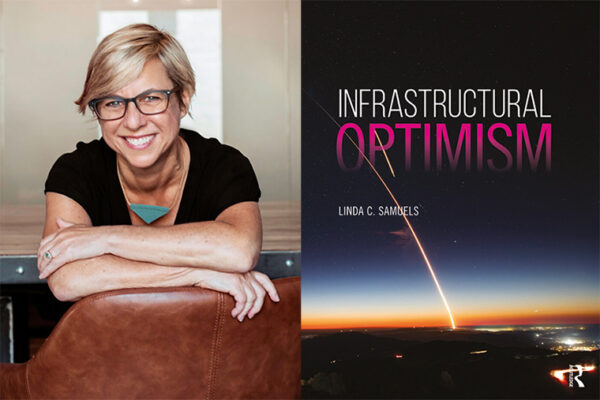Raven Maragh-Lloyd, assistant professor of African and African American studies and of film and media studies, both in Arts & Sciences at Washington University in St. Louis, will serve as co-principal investigator for a $1.7 million grant investigating how online influence campaigns, both foreign and domestic, manipulate the fundamental structures and relationships upon which social media is built.

Titled “Identifying and Measuring User and Platform Vulnerabilities to Strategic Information Operations,” the three-year project is funded by the U.S. Department of Defense’s Minerva Research Initiative.
“Strategic information operations are campaigns designed to spread propaganda, disinformation or manipulative content,” explained Maragh-Lloyd, author of the forthcoming book “Black Networked Resistance: Strategic Rearticulations in the Digital Age” (University of California Press, 2024).
She pointed to the infamous example of Russian military intelligence, which targeted the 2016 U.S. presidential election, but added that such tactics have grown increasingly commonplace. For example, between 2017 and 2021, Meta identified and dismantled more than 150 covert influence operations — associated with tens of thousands of accounts, pages and groups — originating from more than 50 nations.
“It’s not just Russia,” Maragh-Lloyd said. “It’s any actor trying to sow information that’s not accurate.”
The Minerva project builds on a previous Defense Department grant investigating how algorithmic personalization — the key means by which social media companies push content to users — can facilitate online radicalization. “At the most basic level, we’re exploring the relationship between users and technologies,” Maragh-Lloyd said. The Minerva grant “allows us to extend that work from the U.S. to East Africa and Central Europe.”
Like its predecessor, the Minerva grant is organized through the Algorithm and Culture Research Group, a multidisciplinary collaborative that Maragh-Lloyd co-founded while earning a doctorate at the University of Iowa. The principal investigator is the University of Iowa’s Brian Ekdale. Other co-PIs are Andrew High, now at Pennsylvania State University; Volha Kananovich, now at Appalachian State University; and Ryan Stoldt, now at Drake University.

Maragh-Lloyd said the group’s initial objective will be to explore the user-platform ecosystem from a global perspective, accounting for different sociocultural variables. That research will include a series of focus groups, designed by Maragh-Lloyd and tailored to each regional context, as well as computational and discursive analysis. As research proceeds, additional objectives include examining how such variables impact the algorithmic delivery of false and misleading content as well as development of mitigation strategies.
“The focus group sections will help us to understand user engagement,” Maragh-Lloyd said. “What factors lead you to tweet the way you tweet? Are there certain words you don’t use, or certain searches you don’t make, because you’re concerned about being flagged?
“You can’t get that information just by looking at Twitter,” Maragh-Lloyd concludes. “You have to talk to people.”
Founded in 2008, the Minerva Initiative supports social science research aimed at improving our basic understanding of security, broadly defined. All projects are university-based and unclassified, with the intention that work will be shared widely to support thriving, stable and safe communities. It is jointly administered by the Department of Defense’s Office of Basic Research and Office of Policy. For more information, visit minerva.defense.gov.


